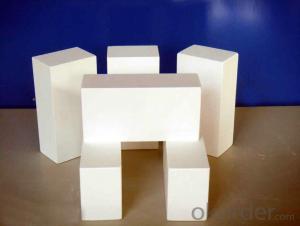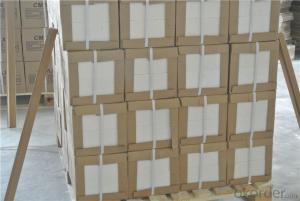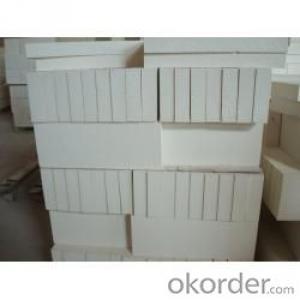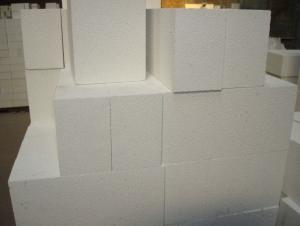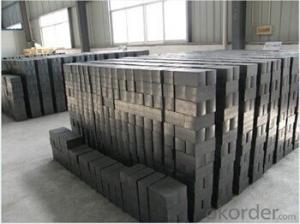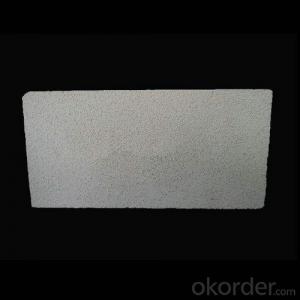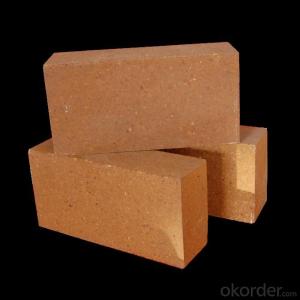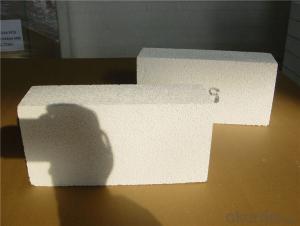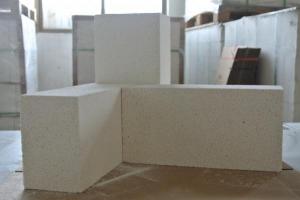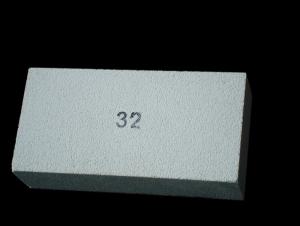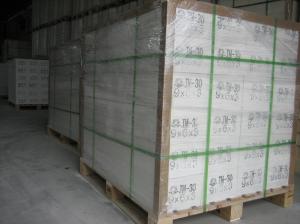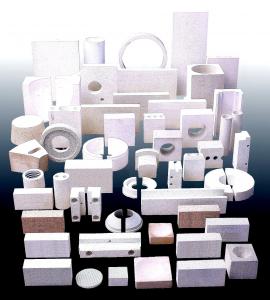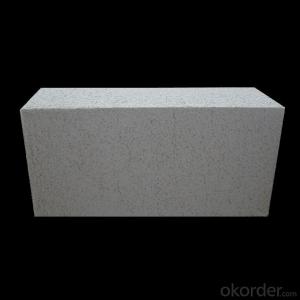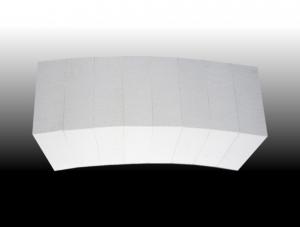Good Thermal Insulation Refractory Fire Clay Brick for Melting Furnace
- Loading Port:
- Shanghai
- Payment Terms:
- TT OR LC
- Min Order Qty:
- 1 m.t.
- Supply Capability:
- 1000 m.t./month
OKorder Service Pledge
OKorder Financial Service
You Might Also Like
Thermal Insulation Fire Clay Brick
Refractory brick is a block of refractory ceramic material used in lining furnaces, kilns, fireboxes, and fireplaces.
We provide high quality Refractory Fire Bricks that are used on wide range in the various industries like Cement, Glass and Steel. Refractory Fire Bricks are provided as per the quantity and specifications required by the customers. We provide an extensive range of Refractory Fire Bricks at reasonable prices that depend upon the quantity ordered.
Application
Insulating Fire Brick are used for the lining of converter, alternating current arc furnace, direct Current arc furnace and the ladle slag line, etc.
Company Advantage
(1)Long Insulating Fire Brick manufacture history: 25 years manufacturer
(2)Advanced equipment
(3)Diversification of production standards: ISO ANSI FEPA JIS ASTM
(4)Flexible payment: T/T L/C D/P D/A
(5)Professional marketing team and after-sale service
Insulating Fire Brick main feature:
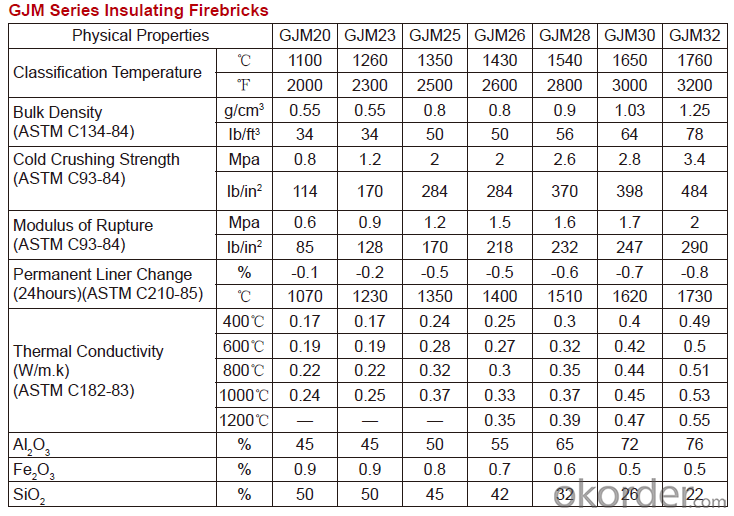
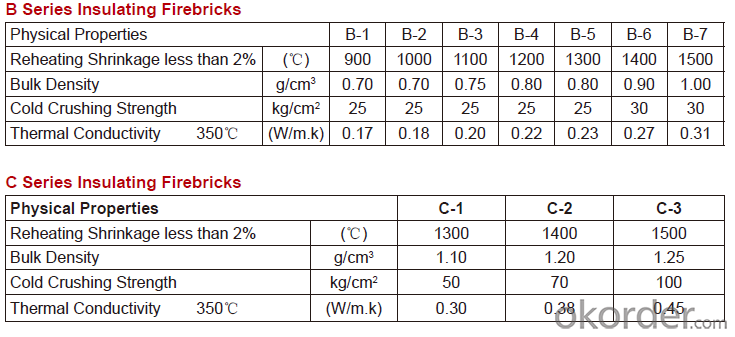
Equipment
1 unit of Ceramic Abrasive (SG Abrasive) pilot production line
2 units of Compact grain Abrasive pilot production lines
1 unit of high-end coated abrasives (abrasive cloth) production line
2 units of Boron Carbide production lines
3 large flexible crushing and sieving lines for grit production lines
6 units of 5000KVA-10000KVA dumping type electric arc furnaces for Brown Fused Alumina fusion
Q1 What’s the transport method?
A1 FCL delivery goods with wooden pallet or wooden case by sea; If LCL delivery, must with wooden case; Sometimes need open top, flat rack or bulk cargo.
Q2 What’s the required payment term?
A2 Generally 30% TT as the prepayment, 70% TT before delivery. If need, 100% Irrevocable Letter of Credit or negotiation.
Q3 Which country are our products exported to?
A3 Apart from entire Chinese market, the US, Russia, Japan, Korea, Australia and some Southeast Asian Nations.
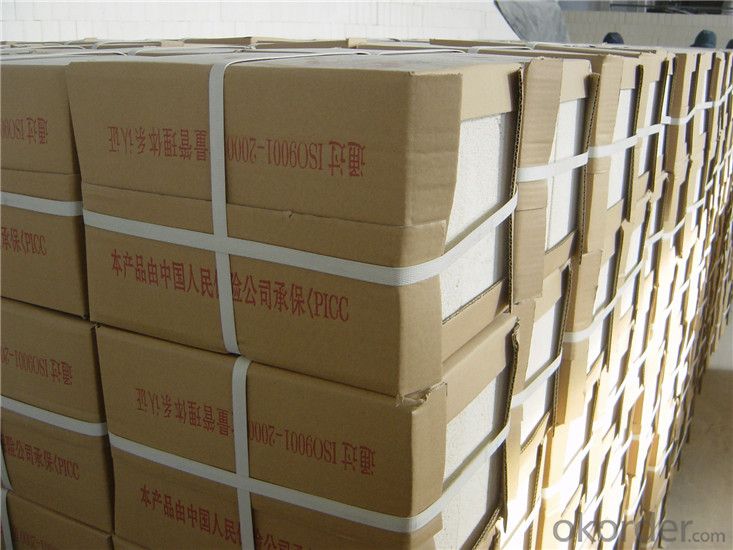
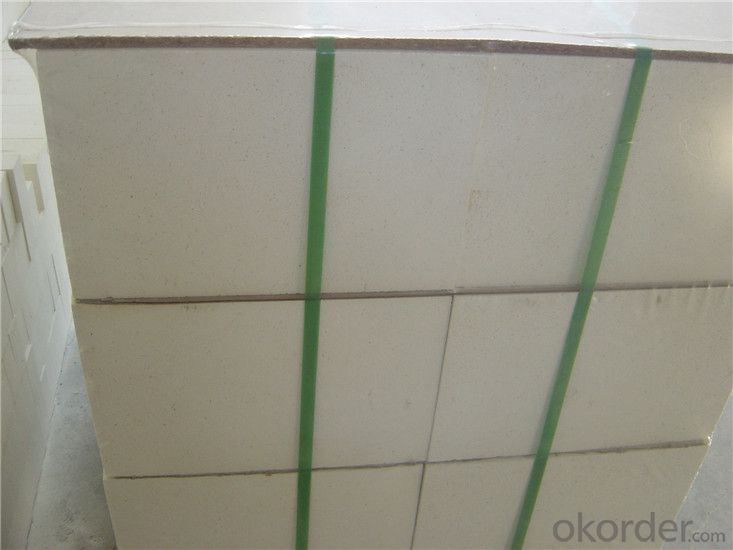
- Q:How do insulating fire bricks affect the overall noise reduction of a structure?
- Insulating fire bricks play a vital role in decreasing the overall noise levels within a structure. These bricks are specially designed to possess exceptional sound absorption properties, rendering them highly efficient in diminishing noise transmission. The insulating fire bricks, characterized by their high density and low porosity, possess the capability to effectively absorb and dampen sound waves. As the sound waves pass through these bricks, the material's internal friction converts the wave energy into heat. This conversion process aids in minimizing sound transmission, resulting in a more tranquil atmosphere. Moreover, insulating fire bricks are renowned for their thermal insulation properties, which indirectly contribute to noise reduction. By maintaining a stable temperature within the structure, these bricks prevent material expansion and contraction, which can generate unwanted noise. It should be noted that the impact of insulating fire bricks on noise reduction can vary depending on the specific construction and design of the structure. To achieve the desired level of noise reduction, factors such as brick thickness, placement, and the presence of other sound-absorbing materials should be considered. To summarize, insulating fire bricks make a significant contribution to reducing noise in a structure by absorbing and dampening sound waves. Their ability to convert sound energy into heat, coupled with their thermal insulation properties, makes them an effective solution for creating a quieter environment.
- Q:Are insulating fire bricks resistant to flame impingement?
- Yes, insulating fire bricks are resistant to flame impingement.
- Q:Do insulating fire bricks require preheating before use?
- Insulating fire bricks typically need to be preheated prior to use for several reasons. Firstly, preheating helps eliminate any moisture or volatile organic compounds that may be present in the bricks. This is crucial as the presence of moisture or volatile compounds can lead to cracking or even explosions when the bricks are exposed to high temperatures. Additionally, preheating allows the bricks to be conditioned and prevents thermal shock, which can occur when the bricks are rapidly exposed to extreme temperatures. By gradually increasing the temperature, the bricks are able to expand and contract without sustaining any damage. Therefore, it is highly recommended to preheat insulating fire bricks before using them to ensure their durability and optimal performance.
- Q:Can insulating fire bricks be used for insulation in ovens?
- Yes, insulating fire bricks can be used for insulation in ovens. Insulating fire bricks are specially designed to withstand high temperatures and provide excellent insulation properties. They have a low thermal conductivity, which means they can effectively retain heat and prevent it from escaping the oven. This helps in maintaining a consistent temperature inside the oven, ensuring efficient and even cooking. Additionally, insulating fire bricks are resistant to thermal shock, meaning they can handle rapid temperature changes without cracking or breaking. Therefore, using insulating fire bricks for oven insulation is a practical and effective choice.
- Q:Can insulating fire bricks be used in smelting furnaces?
- Yes, insulating fire bricks can be used in smelting furnaces. Insulating fire bricks are designed to have low thermal conductivity, which helps to conserve heat and maintain high temperatures inside the furnace. This makes them an ideal choice for smelting furnaces where high temperatures are required. Additionally, insulating fire bricks also have a high resistance to thermal shock, which means they can withstand rapid temperature changes without cracking or breaking. This is particularly important in smelting furnaces where the temperature can fluctuate significantly. Overall, insulating fire bricks are an excellent option for smelting furnaces as they help to improve energy efficiency, reduce heat loss, and provide durability in high-temperature environments.
- Q:Can insulating fire bricks be used in high-temperature insulation panels?
- Yes, insulating fire bricks can be used in high-temperature insulation panels. Insulating fire bricks are designed to withstand high temperatures and provide excellent thermal insulation. They are made from lightweight refractory materials that have low thermal conductivity, allowing them to effectively reduce heat transfer. These bricks can be used in various applications, including furnaces, kilns, and high-temperature insulation panels. They are capable of withstanding temperatures up to 3000°F (1650°C) and can effectively retain heat, making them an ideal choice for high-temperature insulation panels.
- Q:Do insulating fire bricks expand and contract with temperature changes?
- Insulating fire bricks do indeed undergo expansion and contraction in response to temperature variations. Similar to all other materials, exposure to heat causes these bricks to expand, whereas cooling leads to their contraction. This expansion and contraction phenomenon arises from the material's thermal expansion coefficient, which dictates the degree of expansion or contraction in relation to temperature changes. It is crucial to acknowledge this characteristic when utilizing insulating fire bricks in situations that involve anticipated temperature fluctuations. Neglecting to account for the expansion and contraction may result in structural harm or the formation of cracks.
- Q:What is the cost of insulating fire bricks?
- The price range for insulating fire bricks can differ depending on several factors, including the required quantity, brick quality, and supplier. Typically, these bricks can cost anywhere between $2 and $5 per brick. Nevertheless, the price may increase for specialized bricks with unique attributes like enhanced insulation or greater durability. To guarantee the best value for money, it is advisable to obtain quotes from multiple suppliers and compare prices.
- Q:Can insulating fire bricks be used for insulation in boilers?
- Yes, insulating fire bricks can be used for insulation in boilers. Insulating fire bricks are specifically designed to withstand high temperatures and provide excellent thermal insulation. They have low thermal conductivity, meaning they can effectively reduce heat loss and improve the energy efficiency of boilers. Additionally, insulating fire bricks are lightweight and easy to install, making them a popular choice for insulation in boilers. They can help maintain high temperatures inside the boiler, allowing for efficient combustion and heat transfer, while also protecting the outer structure from excessive heat. Overall, insulating fire bricks are a reliable and effective choice for insulation in boilers.
- Q:Can insulating fire bricks be used for both residential and commercial purposes?
- Insulating fire bricks have the capability to serve both residential and commercial purposes. Their design is specifically intended to offer superior insulation and thermal protection, which makes them highly suitable for various applications. In residential environments, these bricks can be utilized to insulate fireplaces, wood-burning stoves, and even pizza ovens, among other possibilities. In commercial contexts, they are widely employed for kilns, furnaces, boilers, and industrial ovens. The widespread applicability of insulating fire bricks contributes to their popularity as a preferred option for projects that demand efficient thermal insulation, regardless of whether they are residential or commercial in nature.
1. Manufacturer Overview |
|
|---|---|
| Location | |
| Year Established | |
| Annual Output Value | |
| Main Markets | |
| Company Certifications | |
2. Manufacturer Certificates |
|
|---|---|
| a) Certification Name | |
| Range | |
| Reference | |
| Validity Period | |
3. Manufacturer Capability |
|
|---|---|
| a)Trade Capacity | |
| Nearest Port | |
| Export Percentage | |
| No.of Employees in Trade Department | |
| Language Spoken: | |
| b)Factory Information | |
| Factory Size: | |
| No. of Production Lines | |
| Contract Manufacturing | |
| Product Price Range | |
Send your message to us
Good Thermal Insulation Refractory Fire Clay Brick for Melting Furnace
- Loading Port:
- Shanghai
- Payment Terms:
- TT OR LC
- Min Order Qty:
- 1 m.t.
- Supply Capability:
- 1000 m.t./month
OKorder Service Pledge
OKorder Financial Service
Similar products
New products
Hot products
Related keywords
